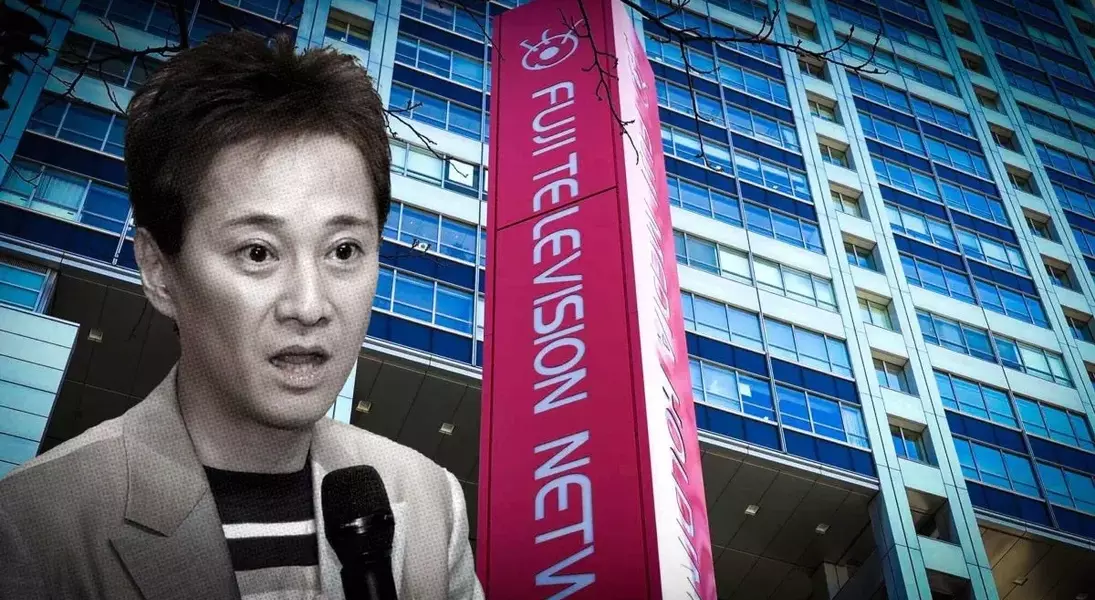
In a significant shift, Fuji Television is navigating through turbulent times following a series of controversies that have shaken its foundation. On January 27, 2025, the network held a pivotal press conference at its headquarters in Tokyo, where outgoing president Koichi Minato announced his resignation amidst growing criticism. The scandal surrounding former talent Naka Masahiro has led to intense scrutiny and calls for accountability within the organization. Newly appointed president Kenji Shimizu, who takes office on January 28, 2025, faces the monumental task of rebuilding trust and steering the company toward a new era of transparency and integrity.
A New Dawn for Fuji Television: Challenges and Commitments
In the heart of Tokyo's bustling Odaiba district, Fuji Television's headquarters hosted a critical press conference on January 27, 2025. Outgoing president Koichi Minato formally resigned, acknowledging the gravity of the situation and the impact it has had on the network. The controversy centered around allegations of misconduct involving former talent Naka Masahiro, which sparked widespread criticism and demands for accountability from the station’s leadership.
Kenji Shimizu, with over four decades of experience as both a producer and executive at Fuji Television, assumed the role of president the following day. In his address, Shimizu expressed deep regret for the lack of consideration shown towards women involved and acknowledged the significant loss of trust from colleagues and sponsors. He emphasized that restoring trust was paramount for the future of Fuji Television. "Without regaining this trust, there can be no future for our network," he stated, highlighting the urgency of the situation.
Shimizu outlined a vision of renewal and transformation, describing the current state as a "start from zero." He pledged to rebuild the network completely, leveraging the talents and dedication of his team. "We are committed to delivering quality content and upholding ethical standards," he said, addressing the concerns of employees, sponsors, and viewers alike. His optimistic tone reflected a determination to turn the page on this challenging chapter.
The scandal has created considerable distrust, leading to the withdrawal of major advertisers and public calls for greater transparency. Shimizu's responsibilities extend beyond internal reforms; he must also mend relationships with sponsors and reassure audiences of the network's commitment to integrity. Public reaction has been mixed, with some viewers feeling betrayed while others remain hopeful about the changes Shimizu plans to implement.
This situation not only highlights the challenges facing Fuji Television but also underscores a broader crisis in media organizations grappling with allegations of misconduct. As Shimizu leads the charge, his efforts will be closely watched, symbolizing the need for respect and accountability within the industry. Despite the difficulties, many see this as an opportunity for substantive change and rejuvenation at the station.
Further questions remain regarding the involvement of former executives like Daisuke Hieda, whose absence from the press conference raised concerns about the company's accountability measures. Stakeholders have called for greater transparency, especially concerning how events were managed. As Fuji Television moves forward, the success of its rejuvenation hinges on the actions taken by its new leadership and their unwavering commitment to preventing similar incidents in the future.
From a journalistic perspective, this event serves as a stark reminder of the importance of accountability and transparency in media organizations. It underscores the responsibility of leaders to address issues promptly and with integrity, ensuring that trust can be rebuilt and maintained. For readers, it offers a glimpse into the complexities of corporate governance and the critical role of leadership in shaping the future of any institution.
